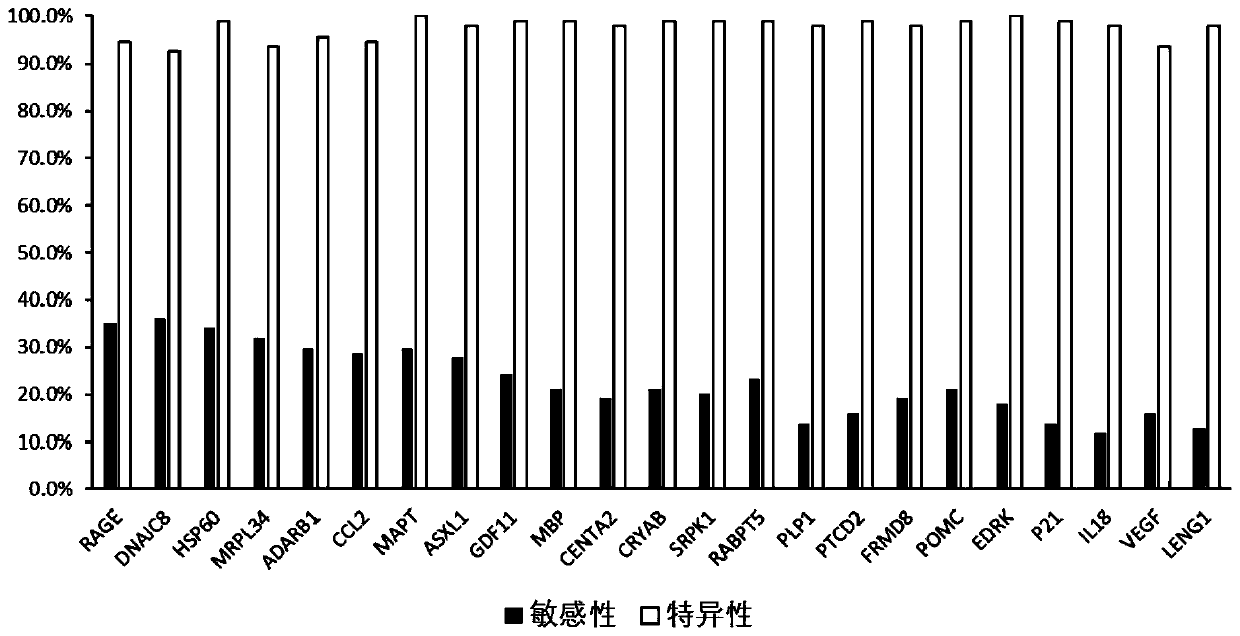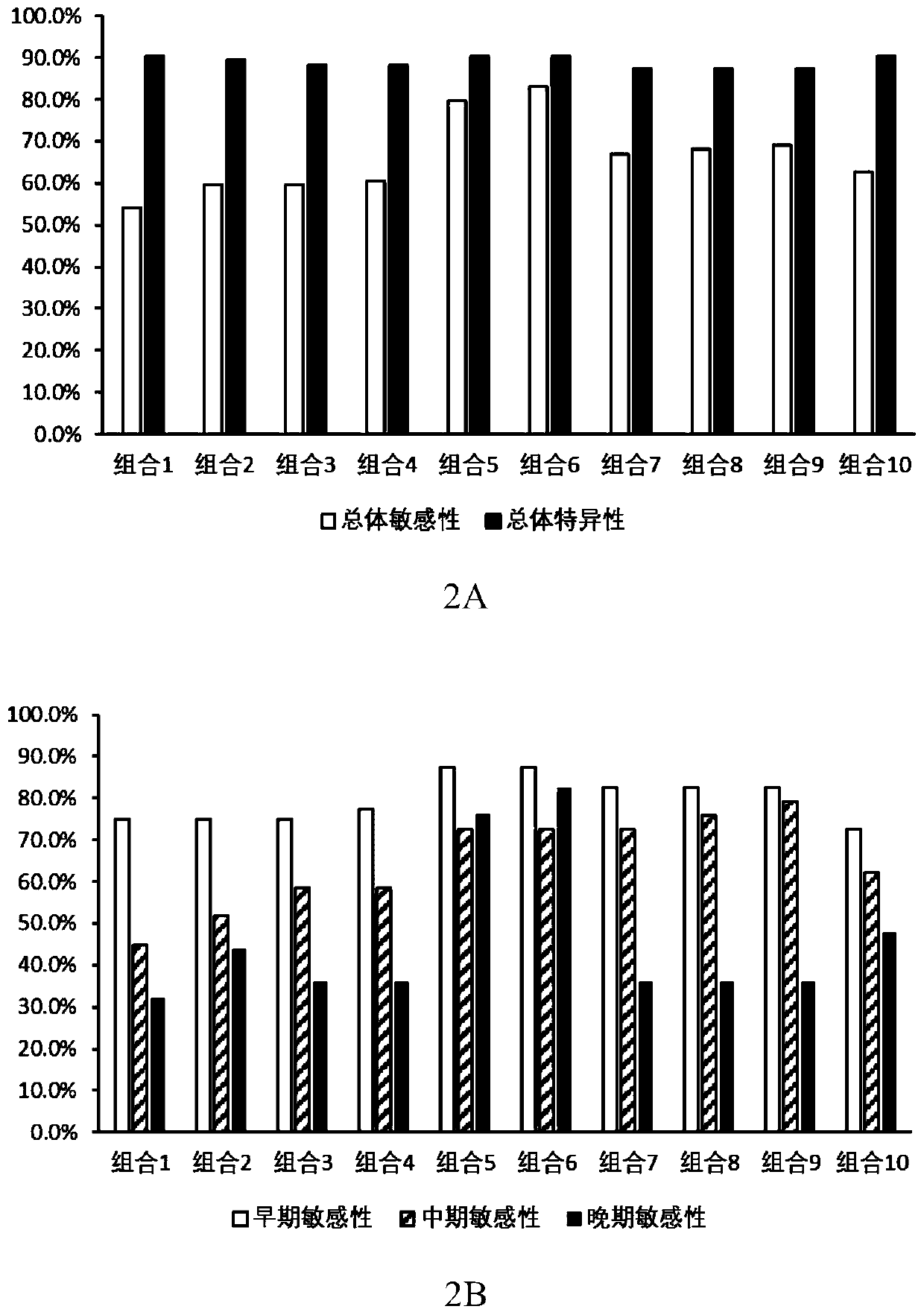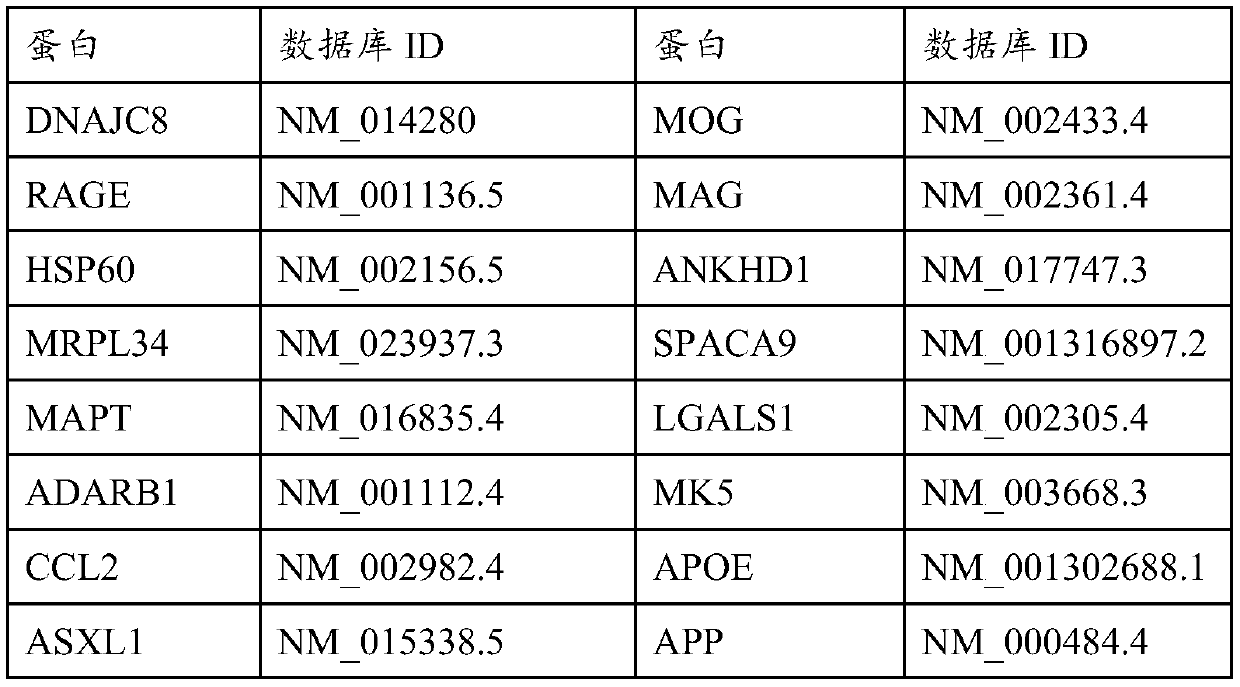Antigen protein combination for detection, diagnosis or risk prediction of Alzheimer, and kit containing antigen protein combination
An Alzheimer's disease, antigen protein technology, applied in the field of biological detection, can solve problems such as staying in a small research stage, difficult to detect autoantibodies, lack of large-scale and reproducible clinical data, etc.
- Summary
- Abstract
- Description
- Claims
- Application Information
AI Technical Summary
Problems solved by technology
Method used
Image
Examples
preparation example Construction
[0070] Preparation method of blocking solution: dissolve 5g of casein in PBS solution, then dilute to 1L;
[0071] Preparation method of 20× washing solution: 20×PBS, pH7.4, add 0.5% Tween20;
[0072] Preparation method of serum / antibody diluent: dissolve 1g casein and 10g bovine serum albumin in PBS solution, then dilute to 1L;
[0073] The preparation method of TMB chromogen: 50mM imidazole buffer pH 5, 7.5mM PEG3350, 2.94mM urea hydrogen peroxide, 1.6mM TMB;
[0074] Preparation method of stop solution: 2M sulfuric acid.
Embodiment 1
[0079] Example 1 Protein Screening for Antigens as Autoantibodies
[0080] Through literature search, 50 known proteins related to Alzheimer's disease were selected, as shown in Table 2.
[0081] Table 2. Sequences of proteins to be tested
[0082]
[0083]
[0084]Using a human cDNA library (purchased from Invitrogen) or DNA synthesized from the whole gene as a template, PCR amplification or enzyme digestion is used to prepare the required recombinant antigenic protein fragments. For example, after the amplified PCR product is purified, it is connected to the pET28 vector, and appropriate tags such as HIS and c-myc are added upstream of the antigen coding sequence to form a fusion protein, and then the recombinant vector is transformed into E. coli DH5α competent cells middle. The obtained recombinant plasmid was identified by colony PCR, enzyme digestion and sequencing to confirm that it contained the correct foreign fragment. Transform the obtained recombinant pl...
Embodiment 2
[0093] Example 2 Detection performance of candidate antigen protein combinations in Alzheimer's disease patients and healthy subjects
[0094] Patients with Alzheimer's disease and healthy subjects were scored according to the Mini-Mental State Examination (Mini-Mental State Examination, MMSE)-Folstein version, and those with a score of 27-30 were normal people, and those with a score of 21-26 Testers with a score of 10-20 are considered moderate (middle stage) patients, and testers with a score of 0-9 are severe (late stage) patients.
[0095] According to the MMSE score, 120 cases of Alzheimer's disease patients in the early stage, 87 cases in the middle stage, and 75 cases in the late stage were taken as test samples, and 94 healthy subjects with normal MMSE scores were taken as samples of healthy subjects to test the antigen proteins of each group Combined Sensitivity and Specificity.
[0096] According to the screening results in Example 1, a variety of proteins were s...
PUM
 Login to View More
Login to View More Abstract
Description
Claims
Application Information
 Login to View More
Login to View More - R&D
- Intellectual Property
- Life Sciences
- Materials
- Tech Scout
- Unparalleled Data Quality
- Higher Quality Content
- 60% Fewer Hallucinations
Browse by: Latest US Patents, China's latest patents, Technical Efficacy Thesaurus, Application Domain, Technology Topic, Popular Technical Reports.
© 2025 PatSnap. All rights reserved.Legal|Privacy policy|Modern Slavery Act Transparency Statement|Sitemap|About US| Contact US: help@patsnap.com



